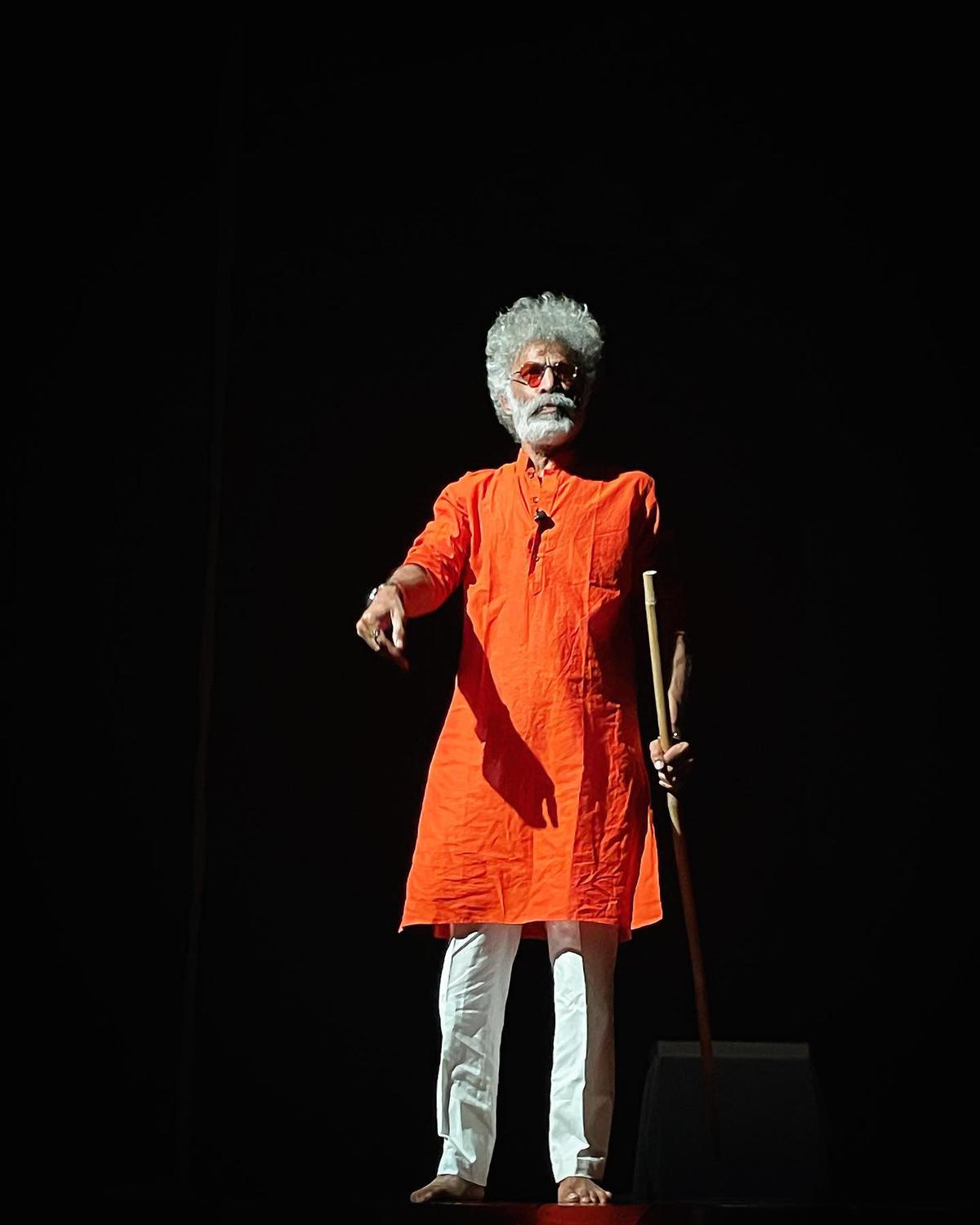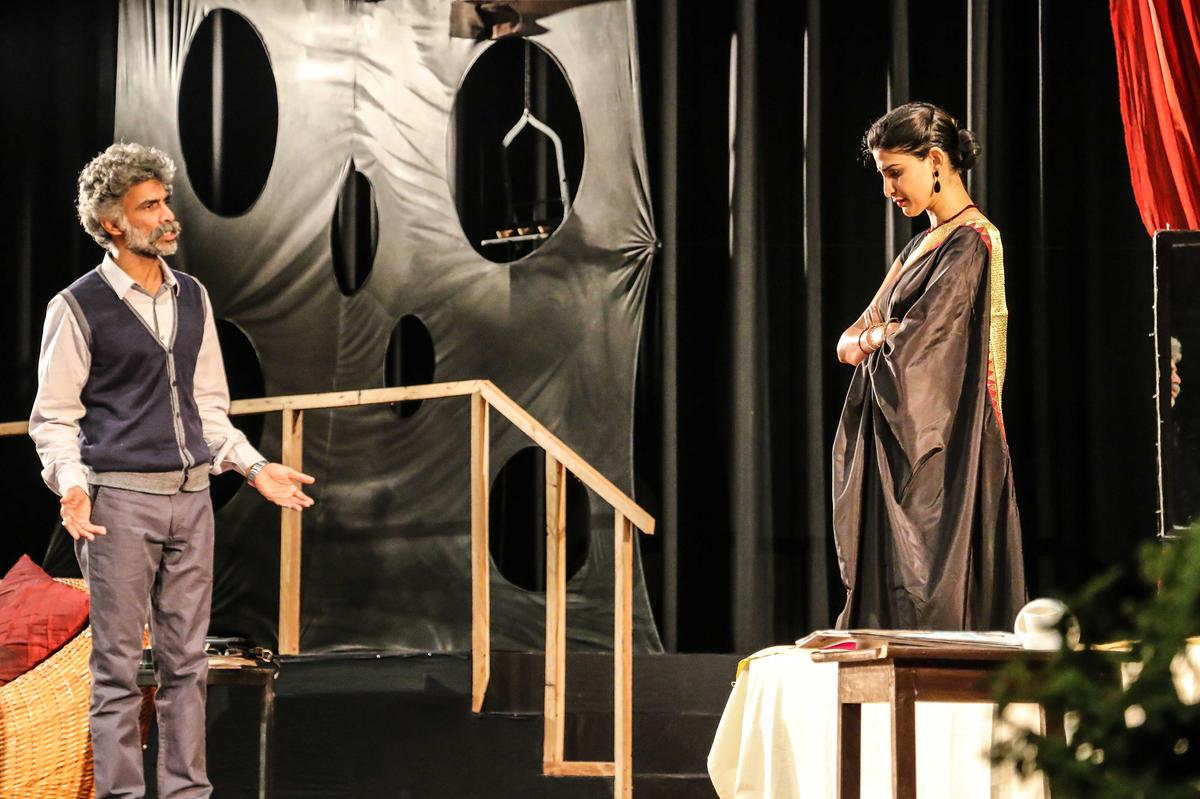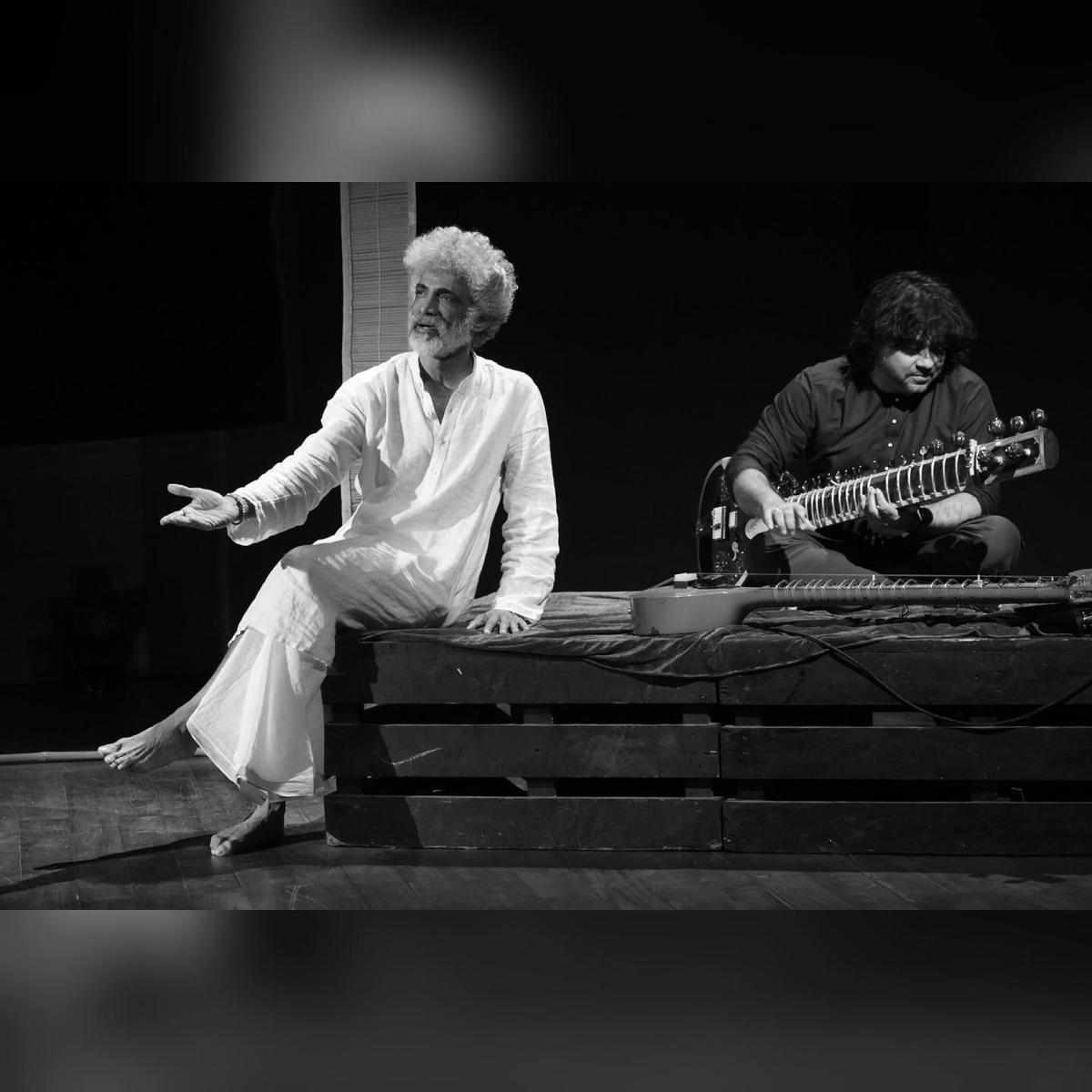What makes Makrand Deshpande a scene stealer
In May, theatre personality Makarand Deshpande staged the 75-minute monologue Sainik as part of the Pratibimb Marathi Natya Utsav at Mumbai’s National Centre for the Performing Arts (NCPA). More recently, on July 7, he directed and acted in the Hindi version at the Prithvi Theatre. It was among the four plays directed by him for his Ansh Theatre Group, and staged on successive days — the others being Balatkaar, Dhat Teri Yeh Zindagi and Sir Sir Sarla.
As its title indicates, Sainik talks of the life of a soldier, questioning the purpose of war. It is one of the two war-themed plays Makrand has directed this year. From June 15 to 18, he directed Siachen, written by Aditya Rawal and starring Zahan Kapoor, Niketan Sharma and Chitransh Pawar. Premiered at Prithvi, it talks of three soldiers stuck on the Siachen Glacier, the highest, coldest battlefield on earth. Says the director, “I was fascinated by the subject. In fact, I was doing another play for Aditya titled The Queen. The dates weren’t matching then and we put it on hold. Meanwhile, he told me of this subject, and I was keen to do it because it was a totally different one.”
Realistic sets

Makrand Deshpande in the play Gandhi
| Photo Credit:
Courtesy: Ansh Facebook
The challenge was to create a stage atmosphere that looked like Siachen. Once set designer Shaira Kapoor worked on the basic props, including a large cloth that resembled a snow-clad mountain, things became easy. “Aditya already had Zahan in mind for the role of the commanding officer. While I was keen on Chitransh, Niketan came later when another actor couldn’t make it. They all have done a fabulous job,” says Makrand.
Once the first run of Siachen were staged, Makrand went about fulfilling his film commitments. He says, “For someone like me, who’s constantly trying to strike a balance between films and theatre, and between acting and directing, scheduling is very important. One also has to focus on what one is doing, instead of trying too many things simultaneously. Before Siachen was staged, I had left everything aside for 15 days to completely absorb myself in the play.”
Theatre, his first love

From Makrand Deshpande’s play Sir Sir Sarla
| Photo Credit:
Courtesy: Makrand Deshpande FB page
Makrand has always maintained that commitment since he began doing plays at Prithvi in the late 1980s, first as a college student, and then as a full-time actor. Initially, he was involved with his informal theatre group Heads Together, where actors from all over India participated. “We did plays in English, Hindi, Marathi, Gujarati. Among others, Manoj Joshi, Kay Kay Menon and Ashish Vidyarthi have been part of this group,” he says. From acting, Makrand got into direction, besides doing film roles in Qayamat Se Qayamat Tak, Salim Langde Pe Mat Ro and Prahaar in the early phase of his career. “In Prahaar, I play Madhuri Dixit’s brother. The role wasn’t too large, but it created an impact. Some of the other film roles which have been appreciated were Satya, Jungle and Makdee,” he points out. He adds, “There was also the Marathi film Dagadi Chawl and its sequel, where I play Daddy (Arun Gawli). In fact, the role became so popular that people met me on the streets and called me Daddy”.
Asked about his theatre favourites, he cites Sir Sir Sarla, in which he plays a professor, Ram, where he plays a madman, and the Marathi play Shakespearecha Mhatara, inspired by King Lear. He adds, “There are so many. Another one I really enjoyed doing was Patni, a collaboration with sitar player Niladri Kumar. I try and choose unusual subjects.”
Making an impact

From the play Krishna with sitarist Niladri Kumar
| Photo Credit:
Courtesy: Ansh FB page
Though he is continuously doing films, theatre remains his first love. He says, “A genuine theatre person will stay with the medium, as the challenges one faces in theatre are special. When one asks me what’s the biggest challenge, I don’t tell them it’s about memorising the dialogues and delivering them in front of a live audience. I tell them it’s about being able to do the same thing repeatedly in exactly the same manner, and creating an impact each time.”
Makrand feels that though many actors will be lured by the sudden popularity of OTT, the dedicated ones will always find satisfaction on the stage. He explains, “At one time, many actors wanted to work in television. Then they acted in videos. Yet, theatre continued to carve its own path, and had its own set of actors and directors. Now, the same holds true with the advent of OTT.”
The bigger challenges are the shortage of halls that specifically focus on theatre. He says, “In Mumbai, Prithvi is one of its kind. Then there are Shivaji Mandir in Dadar and Gadkari Rangayatan in Thane. Other venues have a mix of theatre, music and dance. Moreover, theatre is expensive for many groups, as hiring venues is unreasonable. It’s the same all over India.”
Makrand feels more malls and multiplexes should have dedicated areas to stage plays. “They may not be as profitable as films, but smaller places seating 200 or 250 people should be able to attract new audiences, besides catering to the loyalists,” he says. Hopefully, someone’s listening.
For all the latest Entertainment News Click Here
For the latest news and updates, follow us on Google News.
